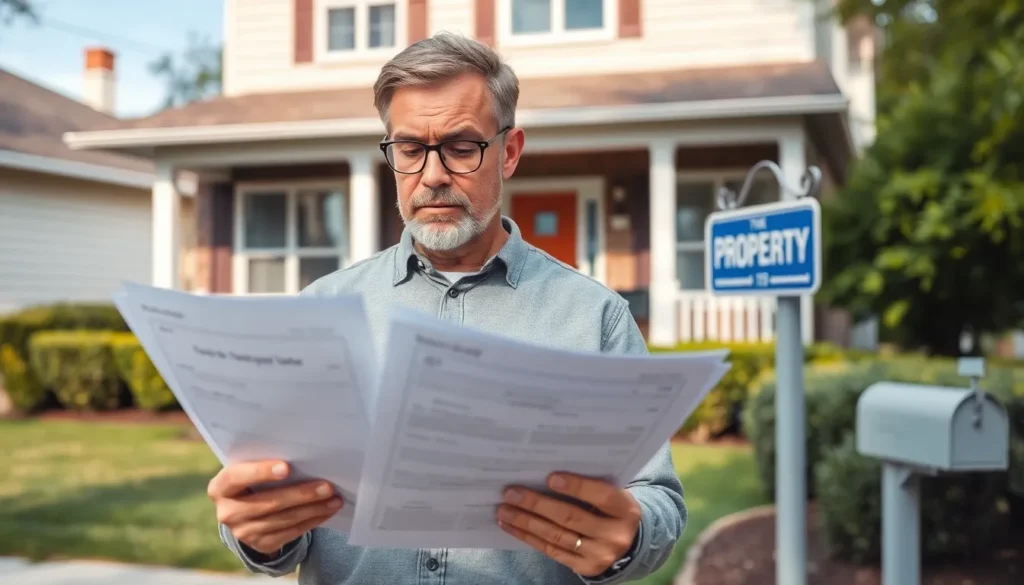Table of Contents
ToggleMunicipal taxes might not be the most thrilling topic, but they play a crucial role in keeping cities running smoothly. Think of them as the unsung heroes of local governance, quietly funding everything from that shiny new park to the pothole repair crew that magically appears when you least expect it. Without these taxes, your favorite community services would be as scarce as a unicorn sighting.
Overview of Municipal Taxes
Municipal taxes serve as a primary source of revenue for local governments. These taxes fund essential community services including sanitation, public safety, and road maintenance. Cities often rely heavily on them to ensure the smooth operation of everyday functions.
Property taxes represent one of the largest components of municipal taxes. They are typically assessed based on the value of real property, which includes residential and commercial properties. Rates can vary significantly depending on the municipality and the specific needs of the community.
Sales taxes also contribute to municipal funding. These taxes are imposed on the sale of goods and services within city limits. Although not as substantial as property taxes, they still play a vital role in generating revenue.
Fees for licenses and permits add another layer to municipal tax revenue. These fees cover a range of activities, from building permits to business licenses. When managed properly, they ensure compliance while bringing additional funds to local budgets.
In some areas, income taxes provide a further source of municipal funding. Local governments may impose a flat or graduated tax on resident income. This approach can directly link community services to the economic well-being of residents, promoting financial fairness.
Municipal taxes hold a critical role in the sustainability of urban environments. Without adequate funding from these taxes, cities risk falling behind in infrastructure development and public service delivery. Maintaining and improving quality of life in urban areas relies heavily on the effective collection and management of municipal tax revenue.
Types of Municipal Taxes

Municipal taxes come in various forms, each serving a unique role in funding local services. Understanding these types helps in recognizing their impact on community well-being.
Property Taxes
Property taxes constitute a significant component of municipal revenue. These taxes are assessed based on the real estate value within a municipality. The percentage varies, impacting homeowners and commercial property owners differently. Local governments often rely on these funds to maintain essential services. Roads, schools, and public safety benefit directly from property tax revenue. Additionally, assessments may periodically change, reflecting shifts in real estate markets.
Sales Taxes
Sales taxes provide another avenue for municipal funding. These taxes apply to the sale of goods and services, collected during transactions. Rates differ by municipality and can fluctuate based on local needs. Funds generated support various public services, such as parks and sanitation. Municipalities often use sales tax to diversify their revenue streams. Increased consumer spending can directly enhance these funds, aiding community projects and infrastructure.
Hotel and Lodging Taxes
Hotel and lodging taxes target the tourism sector, funding local initiatives. These taxes apply to accommodations rented by visitors, usually calculated as a percentage of the rental fee. Revenue generated often supports tourism-related projects and local events. Investments funded by these taxes can enhance a destination’s appeal, drawing more visitors. Locals benefit from improved infrastructure and services funded by this revenue. Municipalities actively promote tourism to maximize this tax’s effectiveness.
Importance of Municipal Taxes
Municipal taxes play a vital role in supporting urban functionality and enhancing community well-being. These taxes ensure local governments can provide essential services.
Funding Local Services
Local governments rely heavily on municipal taxes to finance crucial services. Property taxes typically serve as a primary revenue source, contributing to road maintenance, public safety, and sanitation. Municipalities assess property taxes based on real estate values, directly affecting homeowners and businesses. Sales taxes supplement funding by generating revenue through consumer transactions, further supporting services like parks and waste management. Fees from licenses and permits also contribute, providing additional resources for local projects and compliance efforts. Together, these funding mechanisms enable municipalities to sustain necessary public services.
Impact on Community Development
Community development hinges on robust municipal tax revenues. Taxes help fund infrastructure projects that improve transportation and public facilities, enhancing overall livability. Additionally, well-maintained parks and recreational areas attract families and visitors, fostering a vibrant community atmosphere. The funding supports essential community services, which strengthens local economies by improving property values and creating jobs. Furthermore, targeted taxes, such as hotel taxes, can indirectly benefit residents by enhancing tourism and local business revenue. All these factors highlight the importance of municipal taxes in shaping thriving communities.
Challenges in Municipal Taxation
Municipal taxation faces multiple challenges that impact efficiency and effectiveness.
Compliance and Enforcement Issues
Compliance and enforcement issues hinder the collection of municipal taxes. Local governments struggle to ensure all taxpayers meet their obligations. Noncompliance can result in significant revenue losses for essential services. Auditing processes often delay collections, further straining budgets. Additionally, differing regulations across municipalities complicate enforcement efforts. Taxpayers may evade taxes due to loopholes, diminishing the tax base.
Public Perception and Transparency
Public perception plays a crucial role in municipal taxation challenges. Residents often express concerns about how tax dollars are utilized. Transparency in budget allocation affects trust in local governments. Without clear communication, it becomes difficult to justify increases in taxes. Educational campaigns help inform citizens about the benefits derived from municipal taxes. Engaging the community in budgeting processes fosters a sense of ownership and involvement. Improved transparency will likely enhance public compliance and support for local tax initiatives.
Best Practices for Municipal Tax Management
Municipal tax management requires effective strategies to ensure compliance and community engagement. Implementing best practices can significantly enhance local tax systems.
Effective Collection Strategies
Utilizing technology for tax collection improves efficiency and accuracy. Automating billing processes reduces errors and speeds up payment cycles. Establishing clear deadlines and communicating them helps taxpayers stay informed. Offering multiple payment options accommodates different preferences, making it easier for residents to fulfill their obligations. Regular audits enhance accountability and ensure all property and sales taxes are reported accurately. Training staff on customer service can improve taxpayer experiences, fostering positive community relations.
Engaging the Community
Promoting transparency in tax allocation builds trust among residents. Holding community meetings to discuss budget plans encourages dialogue and feedback. Educating the public about municipal taxes and their impact on local services fosters understanding and compliance. Utilizing social media platforms keeps the community informed about tax deadlines and projects funded by municipal taxes. Developing partnerships with local organizations can amplify outreach efforts, ensuring diverse community voices are heard. Creating informational materials that explain tax processes enhances public awareness and engagement.
Municipal taxes play a crucial role in the vitality of communities. They ensure that essential services are funded and that infrastructure remains in good condition. By understanding the different types of municipal taxes and their impact, residents can appreciate their importance in daily life.
Transparency and effective communication about tax usage are vital for fostering trust between local governments and their constituents. Engaging the community in discussions about budget allocations can lead to better compliance and support for tax initiatives.
Ultimately, a well-managed municipal tax system not only sustains services but also enhances the overall quality of life for residents, creating a thriving environment for all.







